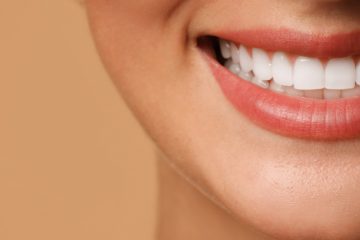Waking up with a parched mouth. Feeling like you always need a sip of water. Noticing that your mouth feels sticky, dry, or uncomfortable throughout the day. These might seem like small annoyances — but persistent dry mouth, known medically as xerostomia, is more than just irritating.
Saliva does more than just keep your mouth moist. It plays a critical role in protecting your teeth, balancing the mouth’s pH, and helping you digest food. So when saliva production is low, it puts your oral health at risk — even if you’re brushing and flossing regularly.
If you’ve been dealing with ongoing dryness, here’s what could be causing it, how it affects your teeth and gums, and what can be done to help.
What causes dry mouth?
There are many reasons your body might not be producing enough saliva. Some are temporary, while others may be ongoing. Common causes include:
- Medications:
Dry mouth is a side effect of hundreds of medications, including antihistamines, antidepressants, blood pressure tablets, muscle relaxants, and diuretics. - Dehydration:
Not drinking enough water — especially during hot weather or after exercise — can dry out your mouth, particularly overnight. - Mouth breathing:
Breathing through your mouth, especially while sleeping, can quickly reduce moisture levels. - Medical conditions:
Diabetes, Sjögren’s syndrome, autoimmune disorders, and some forms of cancer treatment (such as radiation) can all affect salivary glands. - Ageing:
Older adults tend to experience more dry mouth, often due to a combination of medications and changes in the salivary glands.
Why dry mouth is a problem for your teeth
Saliva isn’t just there for comfort. It acts as a natural cleanser, constantly washing away food particles, neutralising acids, and delivering minerals that help strengthen your enamel.
When saliva is lacking, several issues can occur:
- Increased risk of tooth decay
Without saliva to neutralise acids, bacteria thrive — leading to more cavities, especially in hard-to-see places like the gum line or between teeth. - Bad breath (halitosis)
Dry mouth can contribute to persistent bad breath, as food particles and bacteria aren’t being regularly rinsed away. - Gum irritation and inflammation
A lack of moisture can make gums feel sore, swollen, or inflamed, even if plaque levels are low. - Difficulty speaking and swallowing
Saliva helps lubricate your mouth — without it, talking, eating, and even tasting food can become uncomfortable or difficult. - Burning or tingling sensations
Some people with severe dry mouth describe a burning feeling on the tongue or the roof of the mouth.
Signs your dry mouth needs attention
Some people only notice dry mouth overnight or during stressful moments — and that’s not usually cause for concern. But if you’re experiencing symptoms daily, or they’re affecting your quality of life, it’s time to take action.
Here are signs to watch out for:
- Constant dryness, no matter how much water you drink
- Cracked lips or split corners of the mouth
- Sticky feeling in the mouth or throat
- Difficulty chewing dry foods
- Frequent thirst
- Dry or sore tongue
- Waking up thirsty multiple times during the night
What your dentist can do
Dry mouth often has more than one cause, and treatment may involve a combination of strategies. During a dental visit, we can help identify the underlying cause, assess any damage already done, and put together a personalised plan to protect your oral health.
Options may include:
- Reviewing your medication list (in consultation with your GP) to see if dry mouth could be a side effect
- Topical treatments, such as moisturising gels, mouth sprays, or saliva substitutes
- High-fluoride toothpaste or protective coatings to reduce the risk of decay
- Nightguards, especially if mouth breathing or clenching is a factor
- Dietary and lifestyle advice, including how to manage hydration and avoid mouth-drying triggers (like caffeine or alcohol-based mouthwash)
Home tips to manage dry mouth
In addition to professional care, these small changes can make a big difference:
- Sip water frequently throughout the day
- Use a humidifier in your bedroom at night
- Chew sugar-free gum or suck on sugar-free lollies to stimulate saliva
- Avoid smoking, alcohol, and caffeinated drinks
- Stay on top of regular dental visits and cleans
Don’t let dry mouth damage your smile
Dry mouth might seem like a small issue, but its impact on your dental health can be significant if left unmanaged. Whether it’s related to medications, health conditions, or lifestyle factors, there are plenty of ways to ease discomfort and protect your teeth.
Visit us for a thorough review — we’ll help you get to the root of your dry mouth symptoms and find the right support to keep your smile healthy and comfortable.


